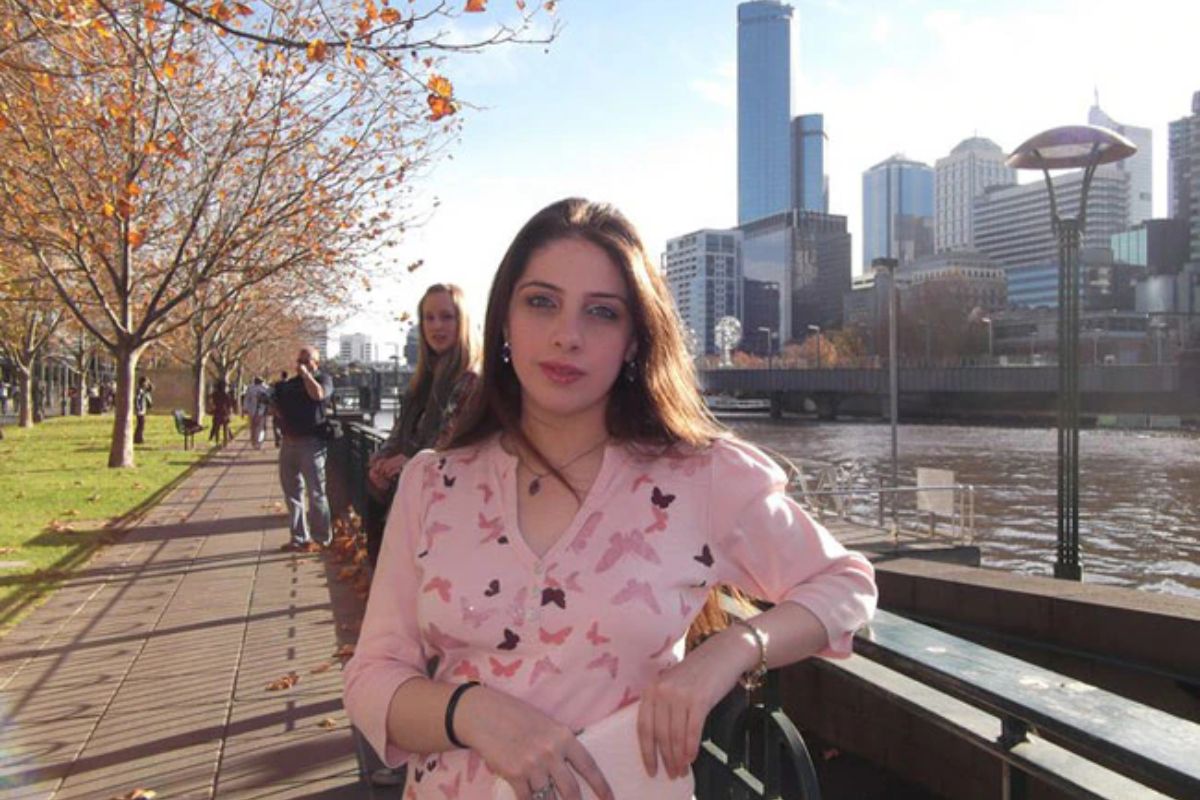NEW DELHI: In a country where music fills every nook and cranny, Maha Ali Kazmi shines brightly as a symbol of talent and determination. As a Pakistani singer-songwriter, she’s faced the hurdles that often sideline female artists. In an interview with The New Indian, Kazmi shares her incredible journey, her obstacles, and why gender inclusivity is so crucial. She’s just dropped her latest song “Fana,” which means “destroyed” or “annihilated” in English.
Kazmi’s debut song, “Nazar,” made her famous overnight. This heartfelt track, praised by the Times of India, connected with listeners all around the globe. “Nazar” is especially dear to Kazmi because her favourite musician produced it, the late Farhad Humayun from the band Overload.
Kazmi’s songs bring back memories of the great English pop music from the 1960s and 1970s. She admits that she grew up listening to icons like Mark Knopfler, Bob Dylan, and Pink Floyd. However, Kazmi’s taste in music has changed over the years. Now, she enjoys folk and light classical music too. She knows it’s important to be flexible in a constantly changing music industry.
“When I was 16 years old, my husband and I grew up together listening to a lot of retro songs that maybe back then people weren’t paying much attention to, you know, like Mark Knopfler, Dire Straits, Bob Dylan, and Pink Floyd. So, I’ve always been drawn towards that sort of genre. Even with Pakistani music, I like the retro sound. Now, I’ve started to evolve my musical taste into folk and a little bit of light classical because the music industry demands versatility,” said Kazmi.
Surprisingly, Kazmi initially wanted to pursue dance, but societal norms in Pakistan hindered her passion. The conservative environment discouraged her from pursuing dance, leaving her with few options. However, she always had a deep love for music. So, she turned to music instead—an equally challenging path but wholeheartedly supported by her parents.
“I was a very extroverted girl who loved the arts and had little interest in studies. I spent countless hours dancing to the tunes of Madhuri songs. Unfortunately, in Pakistan, there was limited scope for dance, and singing was also looked down upon at that time. Realizing this, I had to reassess my options. Being a music lover, I decided to try singing as a career path since dance seemed impractical. However, in recent years, I reconnected with dance and had the opportunity to learn Kathak from Sheema ji and Balavisha from Alaina Roy,” she added.
Dance faces an uphill battle in Pakistan. Trained dancers are scarce, and classical forms like Bharatnatyam and Kathak struggle for recognition. The era of Zia-ul-Haq witnessed a ban on dance, but recent years have seen a shift. While singing has gained acceptance, dance remains undervalued. Kazmi passionately emphasizes the need for awareness and appreciation of this art form.
In 2023, Kazmi in an Instagram fan interaction revealed her experience of harassment during a Coke Studio audition. Kazmi believes that Pakistan’s music scene revolves around this iconic platform, leaving independent artists with limited avenues. Unlike India, where film music and record labels offer diverse opportunities, Pakistan heavily relies on Coke Studio. Kazmi acknowledges its global impact but also highlights pre-Coke Studio legends like Junoon, Vital Signs, and Nazia Hassan. The challenge lies in breaking free from this monopoly.
View this post on Instagram
Kazmi also shares her love for Bollywood, not only dancing to Indian songs she wants to sing in India. Talking about her favourite songs, she said that Recently released Imtiyaz Ali’s movie Chamkeela – who was also a singer in Punjab Killed because of his bold raw songs, portraying the reality of the Punjab.
“I enjoy both Western and Indian music. I’m a fan of Arijit, Amit Trivedi, and A.R. Rahman. Recently, I watched the beautiful movie Chamkeela and loved the song Mujhe Vida Karo. Indian music holds a special place in my heart.” said Kazmi
She also discusses the relationship between singers and audiences portrayed in the movie. “ There was a time when I didn’t know what trolling was. Hearing nasty comments firsthand was hurtful. But I’ve learned to tune out external validation. I became a singer for myself, not for praise or fame. Trolls make fun of my life, but it’s got nothing to do with me. Chamkeela was an exceptional example. Despite criticism, I continue to love my audience,” she added.
Kazmi’s decade-long journey exposes a stark reality: few female musicians thrive in Pakistan. Singers outnumber instrumentalists, and misogyny persists. Male producers often hold the reins, limiting opportunities for women. Kazmi advocates for equal pay, dignity, and a workspace free from exploitation. Her voice resonates as she urges women to raise theirs, challenging societal norms.
In a candid moment, Kazmi reflects on the global struggle faced by women—intimidation, vulnerability, and unequal treatment persist. Her passion ignites, reminding us that music transcends borders. Artists like her break barriers, one note at a time.









